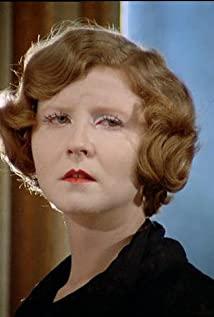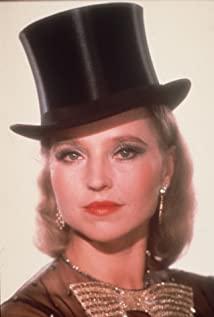only scene in Fassbinder’s "Petra von Conte’s Bitter Tears" is the bedroom, and the main prop-the bed.
Introduce the brief plot of the film: Petra, a middle-aged divorced fashion designer, came to visit his friend Sidoni and met Karin, who had nothing and came to Germany alone. Petra fell in love with Karin, took her at home, provided material life, and made her a supermodel. But once she learned that her husband had also come to Germany, Karin left Petra without hesitation. Petra collapsed frequently, blamed relatives and friends on her birthday, calmed down after the episode, accepted the reality, and decided to re-establish a relationship with Marina who had been with her but was treated harshly.
This is a play full of women, but men are always present: the husbands who appear in the words-divorced, compound, in a different place, lying under the tombstone; there is also a huge oil painting that occupies the entire wall , The naked man standing in the center, highlights a drooping, short and slender penis that is like a scepter that hangs over the heads of women who are intertwined with love and hate that appear repeatedly in the lens.
Fassbender’s arrangement of this is of course his intention: it is this scepter that is instructing Petra to pursue fame, money, and status, and hold it, so that she can dominate others, manipulate others, and try to fill the cause. Desire gap generated by a strong sense of loneliness; the end of being stabbed to the ground by a scepter is very sad. Karin's father drank after losing his job, causing his wife to kill himself and commit suicide. This made the happy memories of a family of five riding bicycles change and questionable —— Without the protection of economic and social status, people's ordinary and trivial happiness is so precarious.
Therefore, although it is a society under the rule of male culture, the "penis" as a symbol of power can be lost by men and occupied by women—although the occupation is incomplete and requires greater effort. Petra succeeded. In the battle for "penis" in the fashion industry, it was not easy to succeed, and it was a difficult and protracted battle to maintain the results. Not only is creating a challenge that must constantly surpass oneself, but when the work comes out, we also worry about whether it can be accepted and whether it is popular. Yes, it will fail if you are not paying attention. When Sidoni saw that Petra was hysterical and self-deprecating because of Karin's departure, he persuaded her: "It's easy to go downhill." What does the downhill mean to her?
In fact, there is no need to remind, Petra believes in this: once he falls down, he will have nothing. The mother and daughter need her money; the lover Karin not only depends on her financially, but also needs her social status and talents; even staying strong in the dispute with her friend Sidoni (about marriage and men) is based on her Based on the success of her career, she can maintain her self-esteem on the ruins of a broken marriage, refuse mercy, and claim that she reconciled with her husband, and advocated understanding and humility, Sidoni is "pathetic."
Everything is shrouded in the brilliance of the scepter, and Petra uses this to interact with people close to him, attracting, giving and suppressing. She gave generously to her relatives and lovers, but at the same time exerted a sense of oppression, asking them to satisfy her wishes and endure her arrogant instructions. She longs for love, but is disappointed and distrustful of the people she loves, believing that they are coming for her own money and reputation. When she was out of control, Petra scolded her mother as a "parasite" and Karin as a "bitch." Such conflicts and volatility not only hurt herself, but also hurt everyone who loves her-the daughter cried before going to bed: "Mom, stop torturing me!"
"People have to demand each other," But it's difficult to get along with." Petra lamented. In fact, her emotional crisis is to bring the individual's social conquest and submission into her private life, to vent her strong emotions in the mode of spiritual abuse and masochism, which can only generate S/M relationships beyond the state of the game. Sadomasochism moves true, it is very painful, and the admired lover may not be willing to cooperate.
The film talks about coercion and implies an attitude towards social order. As a conformer and benefiting from it, Petra clearly agrees and tries to persuade Karin to comply (in order to gain ability, sense of accomplishment, and social status) The promotion), which is specifically manifested in persuading her to return to school. Karin is careless and perfunctory. She is not a good collaborator who can follow Petra's line. Prior to this, the conversation between the two of them in terms of background, outlook on life, etc. had already clarified the differences in some aspects that could not be integrated. Karin even had a foreboding that he might bring trouble to Petra. Unfortunately, Petra Pull ignored this. Petra has no habit of thinking from the standpoint of others, but the problem is that she is so eager to put others into her own track.
On her birthday, the doll Sidoni gave to Petra looked like Karin, and she was a close friend. It seemed that she knew exactly what kind of Karin Petra needed. What she longed to occupy was never a real Karin—in the end, Petra calmed down from the emotional explosion and finally realized. It can be anyone (of course it has to meet her "label"), as long as it can fill loneliness and dispel loneliness. Petra was like a child making trouble unreasonably, crying bitterly, and deeply felt that he was so tired and helpless.
The symbolic doll was taken away by Marina.
Speaking of Marina, the character setting is very interesting, there is no line, but it is by no means a small supporting role. According to my reading, Fassbender’s arrangement for her was actually the second female number, which even surpassed Karin. Marina's movement design is extremely exquisite. For example, Sidoni and Petra, a close friend, talked on the bed in the bedroom. The close-up is Marina's back leaning outside, an elegantly stretched hand attached to a glass wall, isolated and still. , Eager to touch and quite restrained. There are many details like this: the rattling and intermittent typewriter; the silent gaze corresponding to a certain part of Petra’s words; the hand that answered the phone that was inserted out of time...a closer look, you can see Marina. Ubiquitous, and silently promote the plot.
Dressed in black, Marina, who is obedient but dull and clumsy, is like a heavy shadow of Petra; and Petra, who always loves to change her costume and wear a wig, is only in front of Marina. In the whole play, the one who really cooperated with Petra to play orders and obedience was actually the silent Marina.
This is too superficial, I would rather imagine Marina as a symbol of Petra's oppressed personality. Hidden behind the highly aggressive, heavily guarded, and self-centered Petra, is the compassionate, gentle and understanding Marina-she can give selfless and loyal love, but at the expense of herself. Retreat and give in repeatedly. Then, facing the severe social competition mechanism, Petra is of course the home court. But in terms of emotional life, without respect and liberation of Marina, it is impossible to obtain equal and warm coexistence, which is the source of Petra's bitter tears. Therefore, the final dialogue is very meaningful, and Marina's departure.
Petra finally realized the value of Marina, sincerely apologized and proposed to "fight side by side". The queen no longer exists, and Marina's obedience model is broken, and she reacts quickly: move out of Petra's home. In the rather majestic sound, Marina dragged out the box, threw things into it one by one like a game, put on her overcoat, and took away the exquisite puppet belonging to Petra—the "Kalin" doll. All this was done under Petra's joyful gaze.
Although it has a childlike playfulness, it is a bright ending: Marina’s departure is a manifestation of the high degree of tacit understanding between the two. It has to start from the living space. Separation is not necessarily a bad thing. Marina's departure means that she and Petra are reborn. It's hard to say what the future will be, but the efforts of two people are better than one person.
Another: Petra can be a man. Fassbender chose a female identity for her. I think the focus is not on issues such as homosexuality, but because female identity can better connect such a person with society. The conflicts are pushed to the extreme, and then fall back to emotional problems, showing a deeper helplessness and loneliness-what she longs for is not only a lover who provides comfort in life, but also an ally and collaborator with combat effectiveness. This is not a problem for men. The two can be separated, and separation is even advocated: the family belongs to the family, and the career belongs to the career. As a woman, it is easy to split without maintaining consistency. Petra's marriage to her ex-husband failed because of the different "standards", so it was ultimately uncoordinated.
View more about The Bitter Tears of Petra von Kant reviews










